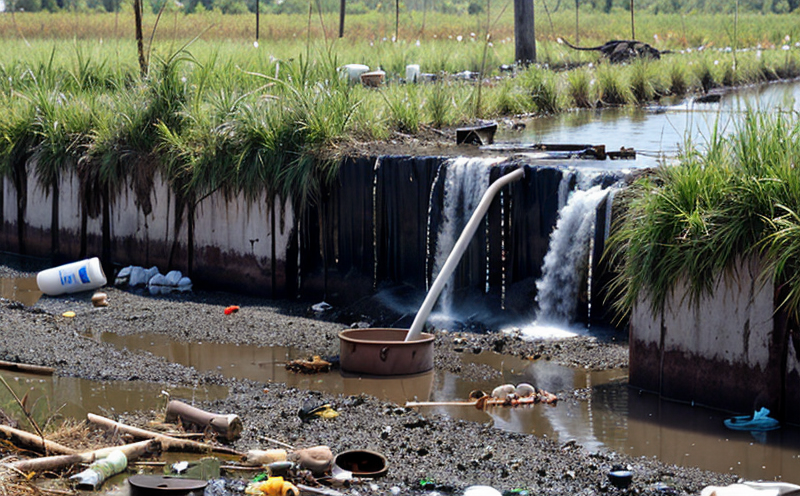Olive Oil Pollutant Testing
In today’s increasingly regulated and health-conscious world, the integrity of olive oil is paramount. Olive oil is not just a condiment; it is a staple ingredient in various culinary applications and dietary supplements. Ensuring its purity from environmental pollutants such as heavy metals, pesticides, and other contaminants is crucial for maintaining consumer trust and compliance with international standards.
Olive oil testing for pollutants involves a meticulous process that starts with the collection of samples from different batches or locations. These samples are then prepared according to the specific guidelines provided by relevant international standards such as ISO 21746:2018 for olive oils and fats. The purpose is not only to ensure compliance but also to safeguard public health.
The testing process typically includes several key steps:
- Sample Preparation: Samples are carefully collected from the source, which could be a production facility or a retail outlet. The samples are then analyzed for potential contaminants using advanced analytical techniques such as Gas Chromatography-Mass Spectrometry (GC-MS) and Inductively Coupled Plasma Mass Spectrometry (ICP-MS).
- Instrumentation: High-end laboratory equipment is used to ensure precision. GC-MS is particularly useful for identifying volatile organic compounds, while ICP-MS helps in detecting trace levels of metals.
- Data Analysis: The data obtained from these instruments are analyzed against the acceptable limits prescribed by relevant standards like EU Regulation (EC) No 1882/2003 on contaminants in foodstuffs. Any deviations can lead to corrective actions and retesting.
The importance of this testing cannot be overstated, especially for industries that rely heavily on olive oil as a raw material or finished product. It ensures that the final products meet stringent quality standards and are safe for human consumption.
Why It Matters
The contamination of olive oil with pollutants can have severe implications, both for the industry and consumers. Pollutants such as heavy metals (lead, cadmium) and pesticides (residues from fungicides or insecticides) can pose serious health risks if they exceed acceptable limits.
Heavy metal pollution in olive oil can lead to neurotoxicity, nephrotoxicity, and other systemic disorders. Similarly, pesticide residues may affect the endocrine system and increase the risk of cancer. These contaminants not only compromise the quality but also violate food safety regulations set by entities like the Food and Drug Administration (FDA) and European Food Safety Authority (EFSA).
Consumer trust is another critical aspect that testing helps to maintain. A reputation for purity and safety fosters customer loyalty, which is vital in competitive markets. Moreover, compliance with international standards ensures that products can be exported without issues, enhancing market access.
Customer Impact and Satisfaction
Conducting stringent tests on olive oil for pollutants not only protects public health but also significantly enhances customer satisfaction. Quality managers and compliance officers appreciate the peace of mind that comes with knowing their products meet the highest standards.
R&D engineers benefit from this service as it allows them to innovate within regulated parameters, ensuring that new formulations or processes do not introduce harmful pollutants into olive oil. For procurement teams, reliable testing ensures they source high-quality raw materials consistently.
The ultimate goal is to provide customers with a product they can trust. By offering olive oil free from environmental pollutants, the service helps companies build and maintain their brand reputation, which translates directly into customer satisfaction and loyalty.
International Acceptance and Recognition
- ISO Standards: Olive oil testing for pollutants is governed by international standards such as ISO 9634-1:2017, which specifies the methods of analysis for fatty acid composition in olive oils. Compliance with these standards ensures that products can be accepted globally.
- EU Regulations: The European Union has stringent regulations like Regulation (EC) No 1882/2003, which sets limits on contaminants such as pesticides and heavy metals. Products must meet these requirements to enter the EU market successfully.
- US FDA Guidelines: In the United States, the FDA provides guidelines for food safety that include acceptable levels of pollutants in olive oil. These guidelines are crucial for companies exporting to or operating within the US market.





